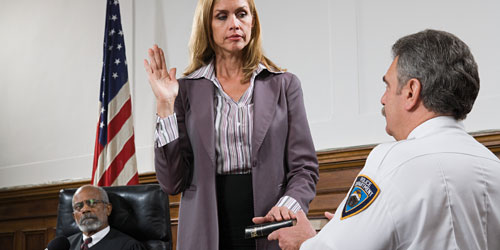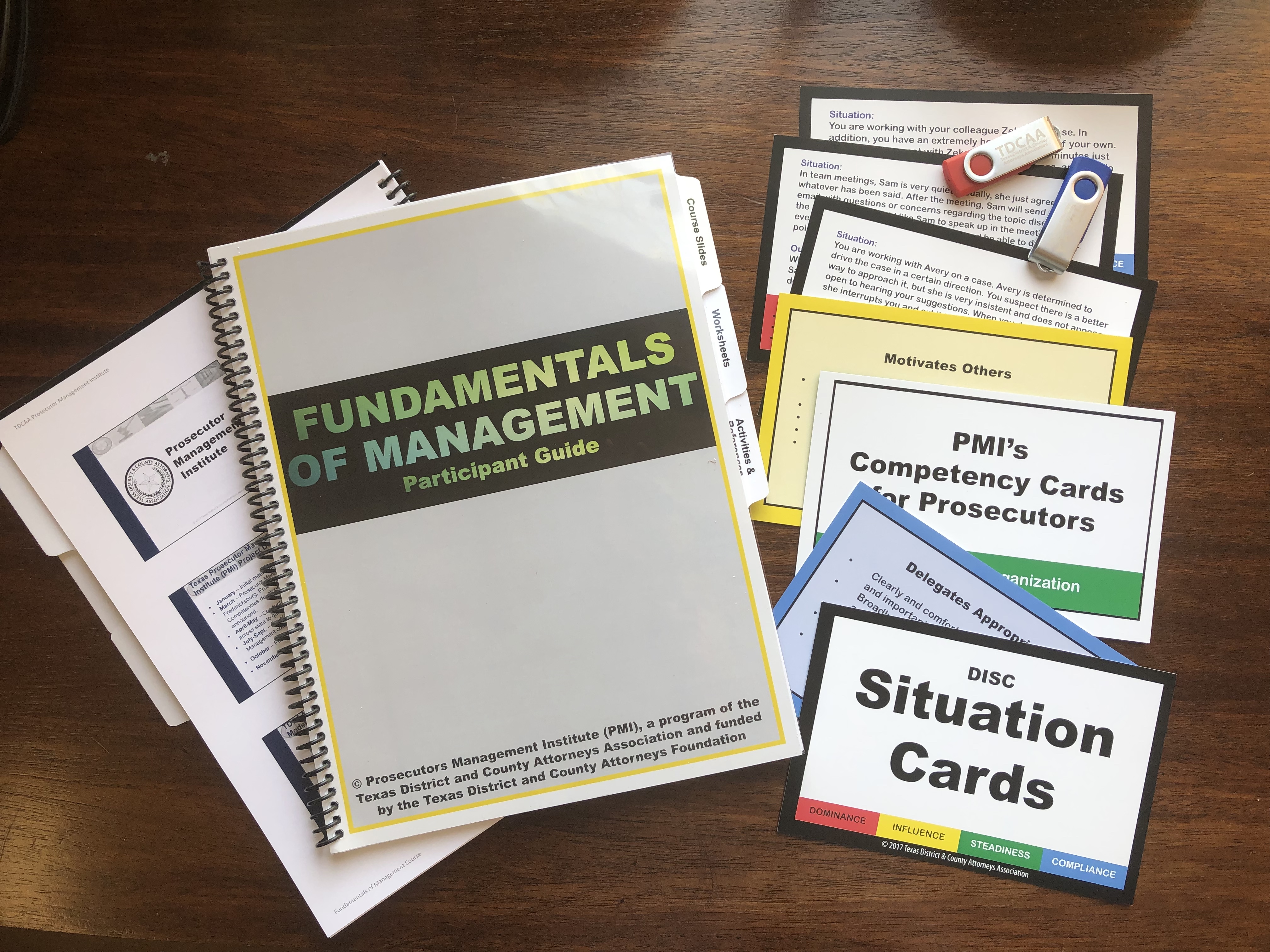Texas Courts of Appeals
Alvarez v. State
No. 01-16-00407-CR 8/30/18
Issues:
Is resisting arrest a lesser-included offense of assault on a public servant?
Holding:
No. Instructing the jury to consider resisting arrest as a lesser-included offense of assault on a public servant is fundamental error. With some exceptions, this fundamental error requires reversal, even if the defendant did not object to the instruction at trial. A defendant may not challenge on appeal a jury instruction that he affirmatively requested. Here, the defendant did not waive his right to appeal the issue by failing to object to the jury charge or saying he was “OK with it” when the State asked about the lesser-included offense instruction. Read opinion.
Commentary:
The Court of Criminal Appeals substantially changed the law of lesser-included offenses in Hall v. State, 225 S.W.3d 524 (Tex. Crim. App. 2007). Before prosecutors allow a lesser-included offense in the jury charge, we need to be secure in the knowledge that it fits within the Hall analysis. This case makes defending jury charges even more difficult by restricting the invited error doctrine—arguably this defense counsel did have a role in this situation. Let’s hope the Court of Criminal Appeals will review this case.
Allen v. State
No. 01-16-00768-CR 8/30/18
Issues:
Is the “summoning witness/mileage” fee under Code of Criminal Procedure Art. 102.011 facially unconstitutional?
Holding:
No. Fees that are collected by courts acting as tax gatherers violate the separation-of-powers clause of the Texas constitution. However, fees that are directed by statute for criminal justice purposes are a proper judicial function of the court. Under Peraza, two types of court costs are constitutionally permissible: “(1) court costs to reimburse criminal justice expenses incurred in connection with that criminal prosecution and (2) court costs to be expended in the future to off-set future criminal justice costs.” Although Art. 102.011 does not direct the fees to be deposited in a separate account for criminal justice purposes, the fees do cover a direct expense incurred by the State in the prosecution of that particular case and are for a legitimate criminal justice purpose. This is distinct from Salinas, which did not address reimbursement-based court costs and is not applicable here. Read opinion.
Dissent (Jennings, J.):
“I would hold that Art. 102.011(a)(3) and (b) are facially unconstitutional as they ‘allocate[] [the] funds’ received for the ‘Summoning Witness/Mileage’ fee to the general revenue fund of either the county or the State and allow such money to be spent for purposes other than legitimate criminal justice purposes in violation of the Separation of Powers clause of the Texas Constitution. … Further, I continue to urge the legislature to reevaluate the fee system currently in place in light of the enormous, and potentially unjustified, burden it too often imposes on the poorest members of society ensnared in Texas’ criminal justice system.” Read opinion.
Commentary:
Another fight in the battle over how much of the cost of government should be borne by those who violate its criminal laws. The majority has an exhaustive analysis of how the law of fees applies to the particular fee in question. Because there are so many of these in play in criminal cases, it may be years before every cost and fee has been through this gauntlet.
Foreman v. State
Nos. 14-15-01005-CR to 14-15-01006-CR 8/31/18
Issues:
May a magistrate reasonably infer the existence of surveillance equipment at a commercial property to find probable cause for the search and seizure of computers and hard drives located there?
Holding:
No. Magistrates may rely on common knowledge when finding probable cause in an affidavit for a search warrant. Common knowledge “consists of matters so well known to the community as to be beyond dispute.” This is not the case for surveillance video or equipment. When there is no evidence that a computer or other electronic equipment was directly involved in a crime, additional information must establish probable cause that the equipment exists and is located at the place to be searched. Here, the affidavit was insufficient to establish probable cause because it did not include any facts to support the belief that the auto body shop had surveillance equipment, such as cameras located outside the shop. Read opinion.
Dissent (Donovan, J.):
“Because [the defendant] did not meet his burden to show that he had standing to complain of the seizure under either privacy theory, I would conclude the trial court did not err by denying the motion to suppress. Furthermore, I would conclude the alleged error is not reversible. The error, if any, in admitting the videotape does not automatically merit reversal. … Because [the complainants] gave eyewitness accounts at trial as to [the defendant’s] involvement, I would conclude beyond a reasonable doubt that the error, if any, in admitting the video tape did not contribute to [the defendant’s] conviction.” Read opinion.
Dissent (Jamison, J.):
“Ubiquitous. Surveillance cameras inside commercial properties have become ubiquitous. Convenience stores. Doggy daycare facilities. Casinos. Retail checkout lines. Interior commercial video surveillance systems, designed to prevent internal theft, vandalism, and other forms of criminal activity from occurring on an owner’s property or to catch those responsible for the activity, are everywhere. Yet, the majority holds that it was unreasonable for a magistrate to conclude that surveillance video or equipment had been installed inside the Dreams Auto Customs building. Because I find that this inference, supported by the facts and circumstances articulated in the search warrant affidavit, is reasonable, I respectfully dissent. I would hold that the trial court did not err in denying [the defendant’s] motion to suppress and affirm the trial court’s judgment.” Read opinion.
Commentary:
This is a rare en banc opinion. The 4th Amendment requires that a warrant affidavit establish that a particular thing is located in a particular place. Here, the court holds that a magistrate could not infer that a video surveillance system and stored videos were in the location searched based on an affidavit describing a robbery and items more normally associated with a robbery. What the officers could have done, once they were in the location and noticed the surveillance system, was obtain a new warrant authorizing a search and seizure of the system. This is a long opinion with multiple dissents but will be valuable to officers (and the prosecutors assisting them) as an object lesson of what to do if they find something different at a scene from what the warrant authorizes them to seize.
Announcements
Who’s coming to Galveston?
If you haven’t already registered for our Annual Criminal and Civil Law Update in Galveston, now is the time! This year’s conference will be held September 19–21 at the Moody Gardens Convention Center. Further details—including hotel information—and instructions for registering online are available here, so don’t delay: Reserve your spot today!
New TV documentary looking for Texas cases
The producers of a new TV documentary called “Murder for Hire” are seeking cases to potentially be featured on the show. It’s being co-produced by Dick Wolf (creator of the Law and Order series) and Shed Media, and the same folks produce “Criminal Confessions.” More information is available here.



